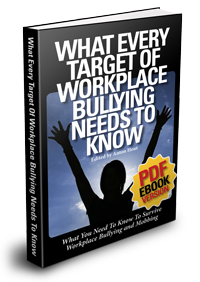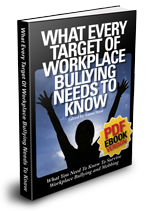Birthday Party Bully Blues
By Karen Kondor
Can you believe it? Your child is one year older! It’s time, once again, to plan a birthday party for your youngster!
On top of wanting to pick the best activity, order the perfect cake, and ensure everyone has fun, you are agonizing about the guest list. Do you invite everyone from the class, or limit the number of kids? And what should you do about that child who bullied yours throughout the entire school year? Unfortunately, there are no clear cut answers to that question, but there are some things to consider that might help make your decision a bit easier.
First, you must know that even if your child wasn’t the direct target of a classroom bully, your child was affected by the bully’s behavior. Standing on the sidelines and watching a classmate be bullied leaves children feeling powerless, scared and frustrated. So, deciding which children to invite based on whether or not your child was affected by the bully doesn’t fly.
That does not necessarily mean that you should exclude the bully, however. Depending on how long the behavior has gone on, the severity of the behavior, and the amount of communication you have with the bully’s parents, it might actually be a step in the right direction to invite the bully. Bullies need just as much guidance and role modeling as victims, and extending a hand to show that you care might just be a starting point. If, on the other hand, you’ve tried this in the past, or the bully’s behavior is more than you can handle, you may want to keep the bully’s name off the guest list. After all, you should be able to enjoy your own child’s birthday party, too!

Peter Atkins / stock.adobe.com

Peter Atkins / stock.adobe.com
What steps can you take to make the experience a good one for all concerned? Try these ideas:
First, if you are in good communication with the bully’s family, let them know that you want their child to attend. However, if there are any problems at all, you have the right to deal with them in a way you see fit, which may involve calling the parents and asking them to pick their child up early. Be sure you have their cell phone and home phone numbers with you!
Second, prior to the date of the party, think back to situations that you observed that involved the bully. How were those situations dealt with? Could they have been dealt with differently? If so, how? Use the answers to these questions to put a game plan into place: “If this happens, then I am going to…” That way, you’re not flying by the seat of your pants when a difficult situation arises in the midst of ten or so screaming kids!
Finally, however you decide to deal with difficulties that arise at the party, be fair and be firm. If you tell the child that throwing a ball at someone’s head is not acceptable, and you will take the ball away if it happens again, follow through with that consequence at the very next infraction. If you tell the child that you will call his or her parents if the poor behavior continues, dial the number as soon as you notice the behavior surface again. Very often, bullies are craving the feeling of security that comes with structure and rules, and a lot of their behavior is related to seeing what they can get away with. When you put limits in place for them, and they discover that you are firm on those limits, the likelihood of them breaking the rules decreases over time.
What if you decide to exclude the bully from the guest list? Again, it comes down to putting a plan into place before the invitations are handed out:
Be prepared for the bully’s parents to come knocking. Chances are, they will feel that your child is bullying theirs simply by not sending an invitation. Make a list of the reasons you chose not to invite the bully, and take the opportunity to be honest and forthright with his or her parents, but not cruel. State calmly that you thought very hard about inviting their child; however, you had a bad experience in the past and your child is fearful of being around their child…whatever your reasons may be.
Talk to your child about the possibility that the bully may retaliate. Once the bully gets wind that they are not invited to the party, they may take it out on your child in whatever form of bullying they resort to, or they may resort to a new form of bullying in the face of a new stressor. Tell your child that if this occurs, it is not okay, and they must ask a nearby adult for help immediately, and report the incidents to you at the end of the school day. Be prepared to follow up with the staff at the school and/or the bully’s parents.
Planning, preparation and communication are key when it comes to organizing your child’s yearly celebration. Communication with the bakery that is making the cake for the party is just as important as communicating your expectations surrounding appropriate party behavior with all party-goers and their parents. Part of your preparation should include plans for “what-if’s”: “What if I forget candles for the cake? What if I invite that kid who bullies my kid? What if I don’t invite that kid who bullies my kid?” Having game plans in place prior to the party will go a long way in alleviating some of the stress that can surround children’s birthday parties, leaving you to enjoy being a part of your child growing older.
Karen Kondor is a Certified Olweus Trainer with Find Your Voice, a bullying prevention and intervention consulting provider.










